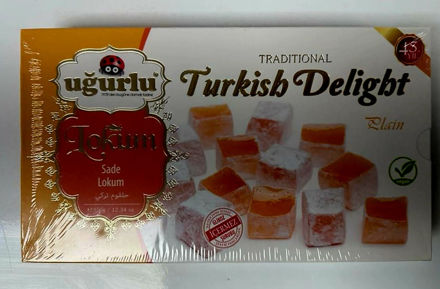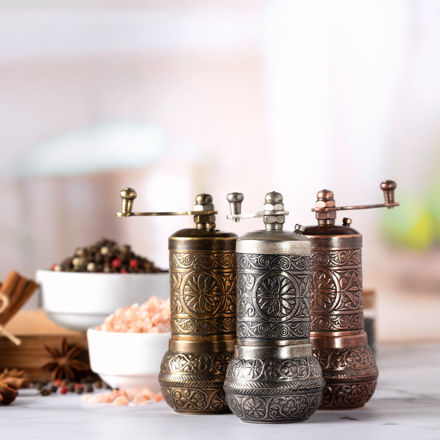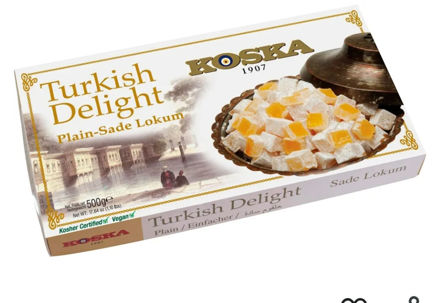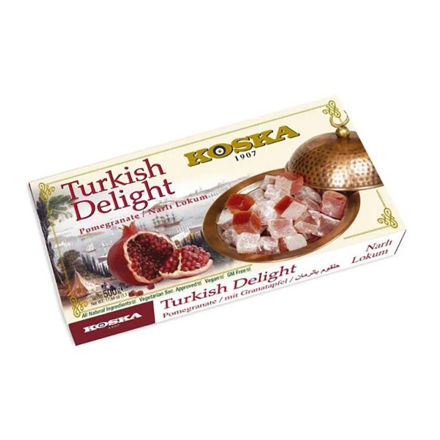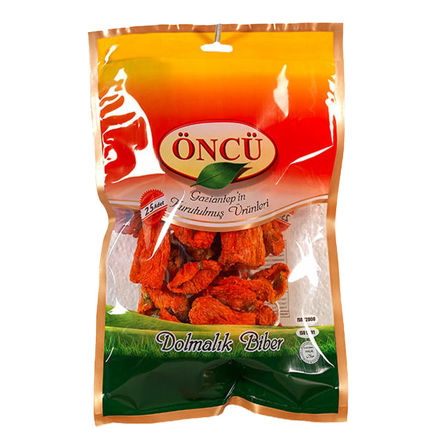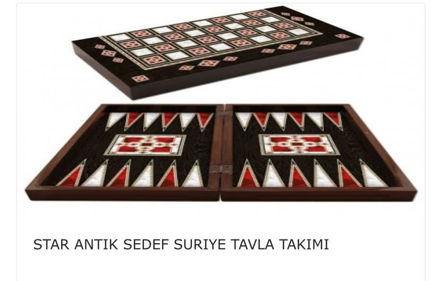Grand Bazaar
With origins dating back to 18th century Turkey, Turkish Delights are square gel-based confections made with cornstarch and sugar syrup, sometimes with special flavorings, and oftentimes chopped nuts or shredded coconut. Turkish Delights, known as “Lokum” in Turkey and the Middle East and “Loukoúmi” in Greece, were considered rare delicacies during the Ottoman Empire. Today, these dense, chewy candies are popular Mediterranean, Middle Eastern and Southeastern European sweets. Koska Turkish Delight Hazelnut feature chunks of crunchy hazelnuts in each square, with a coating of icing sugar. Koska is the largest producer and exporter of Lokum in Turkey and still uses the original, traditional family recipes for all their offerings.
$9.99 $13.99
Suitable for grinding spices, pepper, coriander, salt, cardamom, mustard, cumin, sumac. Manual Pepper Mill with Handle,MADE IN EUROPE: Most of our products are sourced from several countries like Italy, Bosnia, and Turkey.
$14.99
With origins dating back to 18th century Turkey, Turkish Delights are square gel-based confections made with cornstarch and sugar syrup, sometimes with special flavorings, and oftentimes chopped nuts or shredded coconut. Turkish Delights, known as “Lokum” in Turkey and the Middle East and “Loukoúmi” in Greece, were considered rare delicacies during the Ottoman Empire. Today, these dense, chewy candies are popular Mediterranean, Middle Eastern and Southeastern European sweets. Koska Turkish Delight Hazelnut feature chunks of crunchy hazelnuts in each square, with a coating of icing sugar. Koska is the largest producer and exporter of Lokum in Turkey and still uses the original, traditional family recipes for all their offerings.
$9.99 $12.99
With origins dating back to 18th century Turkey, Turkish Delights are square gel-based confections made with cornstarch and sugar syrup, sometimes with special flavorings, and oftentimes chopped nuts or shredded coconut. Turkish Delights, known as “Lokum” in Turkey and the Middle East and “Loukoúmi” in Greece, were considered rare delicacies during the Ottoman Empire. Today, these dense, chewy candies are popular Mediterranean, Middle Eastern and Southeastern European sweets. Koska Turkish Delight Hazelnut feature chunks of crunchy hazelnuts in each square, with a coating of icing sugar. Koska is the largest producer and exporter of Lokum in Turkey and still uses the original, traditional family recipes for all their offerings.
$9.99 $13.99
Dried Bell Peppers consist of carefully selected and dried bell peppers. Thanks to the dried bell peppers, you can make delicious and healthy meals. You can first soak the dried peppers in hot water for a while and let them soften. Or you can boil the peppers by throwing them in boiling water until they are soft. Take care that the bell peppers do not soften too much, as you will cook them after they are filled. You can fill the peppers with a filling that you prepare according to your own taste. You should store dried bell peppers in a cool and dry environment. You can also put the bell peppers in an airtight container and keep them in the freezer.
$10.99
Backgammon is one of the oldest board games. Board game for two players; pieces move according to throws of the dice. Made in Turkey.
$69.99 $79.99
Min: $3.00 Max: $80.00
$3 $80
















